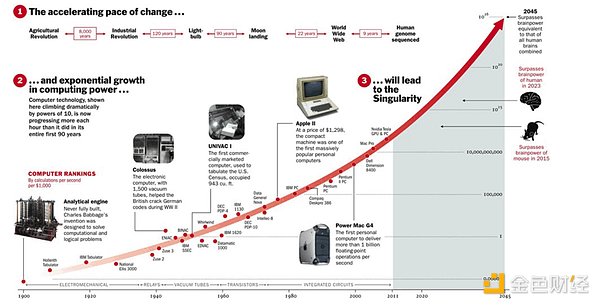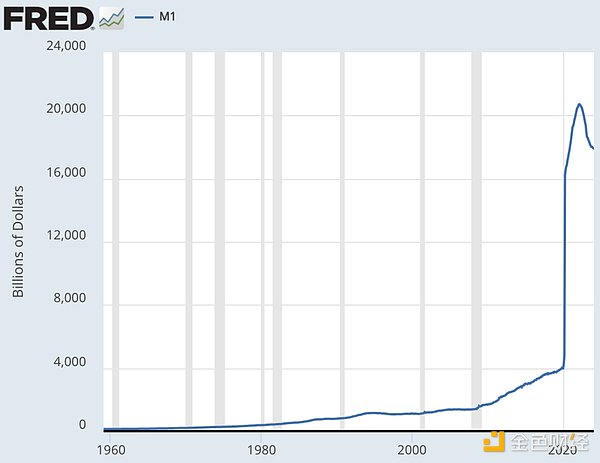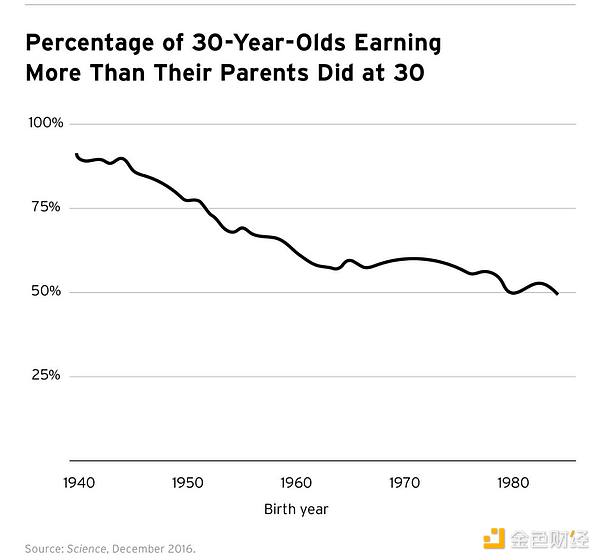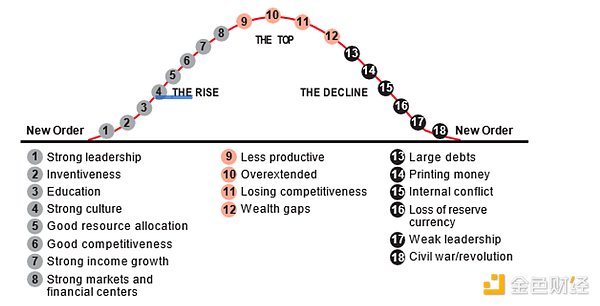Author: Marco Manoppo Source: Launchy Translation: Shan Ouba, Jinse Finance
Cryptocurrency is now a decade old industry. To be more precise, it has been around for 15 years, but while the Bitcoin whitepaper was released in 2008, there wasn’t much to do on the blockchain until Ethereum pioneered smart contracts.
Some would even say that the word “industry” is still too generous.
The entire cryptoasset market is still smaller than Nvidia. Next time you think about selling your crypto to BlackRock, read that last sentence again. That being said, gone are the days when crypto was seen as career suicide, and gone are the days when developers and investors were seen as foolish for participating.
However, your family may still ask you if what you are doing is real.

So, other than increased public recognition and no more being looked at strangely for saying you work in crypto (who would believe me… that still happens) — what have we achieved after more than a decade of development, iteration, and experimentation?
As it turns out, a lot!
Stablecoin settlement volume reaches $10 trillion, approaching Visa’s level
Over $100 billion in crypto assets pledged
Bitcoin ETF AUM reaches $10 billion, fastest growing ETF in U.S. history
Wait a minute… why is everything we’ve accomplished tied to money movement or some kind of investment product? What about Web3, decentralized identity, and the Metaverse! Yes, the kids want the Metaverse!
You won't own any land, but you will own this private digital plot of land next to Snoop Dogg's pixelated mansion, and you'll be glad you did! Next!

To understand why the above achievements are amazing even though we don’t have mainstream consumer applications yet, we need to recognize what cryptocurrency is.
Is it a new asset class? Is it a new form of equity? Is it a new form of money or commodity? Is it a movement? Is it an ideology rooted in libertarianism?
After being in the cryptocurrency space for over 7 years, my definition of cryptocurrency is simple:
Cryptocurrency is a tool to increase the velocity of capital; capital is ultimately a means of coordinating energy.
Capital velocity
I know what you are thinking. Is this another piece of crap that VCs churn out to capitalize on the downturn? Well… trust your gut ;)
But regardless of that, let’s move on…
Over the next 50 years, only two things will continue to happen:
The world is becoming more digital
The world is becoming more turbulent
It doesn't matter whether you are a technological optimist or a nostalgic.
Our world is heading in unprecedented directions. A historian, another term for a macro fund manager, might try to compare the current world to the past, looking for patterns that can be used to analyze the current state of the world.
While there may be some benefits to studying the past, the world and society have never faced such a rapid pace of scientific and technological innovation. The innovations we have created in the past 100 years have resulted in exponential progress compared to the progress made between 1500-1900.

Source: Time Magazine
And we're not slowing down.
Think about it, our parents and grandparents used to have more time to adapt with each technology cycle. There were some differences between mobile phones, but until the internet came along, they all had more or less the same functionality.
Since then, everything has gotten exponentially faster. In 2015, the word “influencer” was relatively new. In 2017, we had the first cryptocurrency ICO bubble. In 2020, we had the COVID virus and mRNA vaccines. In late 2022, we had ChatGPT. A college graduate in 2019 has never seen the rapid technological innovation of the past five years.
Fast forward to 2024, and we are having a heated discussion around nuclear energy, biotech, and space/military technology. All of this doesn’t even take into account AI girlfriends. Yes, we shouldn’t underestimate that AI girlfriends will be the innovation with the greatest impact on human society (but that’s another topic).
In terms of volatility, we have to acknowledge that macro fund managers have contributed something. When 75% of the current USD supply has been printed in the last four years, something is bound to break sooner or later.

For the first time in history, we have a generation that will be no better off than their parents.

Why are the two charts above so important?
Because they symbolize the growing gap between the rich and the poor in our world, a gap that will ultimately lead to instability.
Massive wealth inequality caused by wrong policy decisions and a social structure that fails to give hope to the younger generation will inevitably lead to social unrest and make our world a more turbulent place.
So, why should we get involved in cryptocurrency?
If done correctly, cryptocurrency will become a tool for a decentralized system.
Many aspects of our world, including money, power dynamics, and other social structures, operate as systems. These systems are becoming increasingly digital and volatile. To prevent chaos and maintain stability, society must have a way to effectively coordinate its energies and nip the threat of collapse in the bud.
I believe that, if done correctly, cryptocurrency is the right tool to achieve this goal.

That’s because cryptocurrencies can increase capital velocity. The permissionless nature of cryptocurrencies reduces transaction friction, making it easier to trade value between any entity in the world. At the end of the day, capital is simply a means of coordinating the flow of energy. From funding new projects to creating incentives, our entire world relies on how capital is allocated.
Essentially, our entire world is just a mechanism design.
This is why cryptocurrency is often seen as an incredibly interesting and controversial industry. Due to its permissionless and decentralized nature, it has the potential to disrupt the existing system. It is the best tool for coordinating capital (and therefore energy) in an increasingly digital and volatile world where power and wealth gaps are widening. It is also the means for everyone to truly own their capital, digital footprint, and ultimately their energy.
Keep thinking and act pragmatically.





